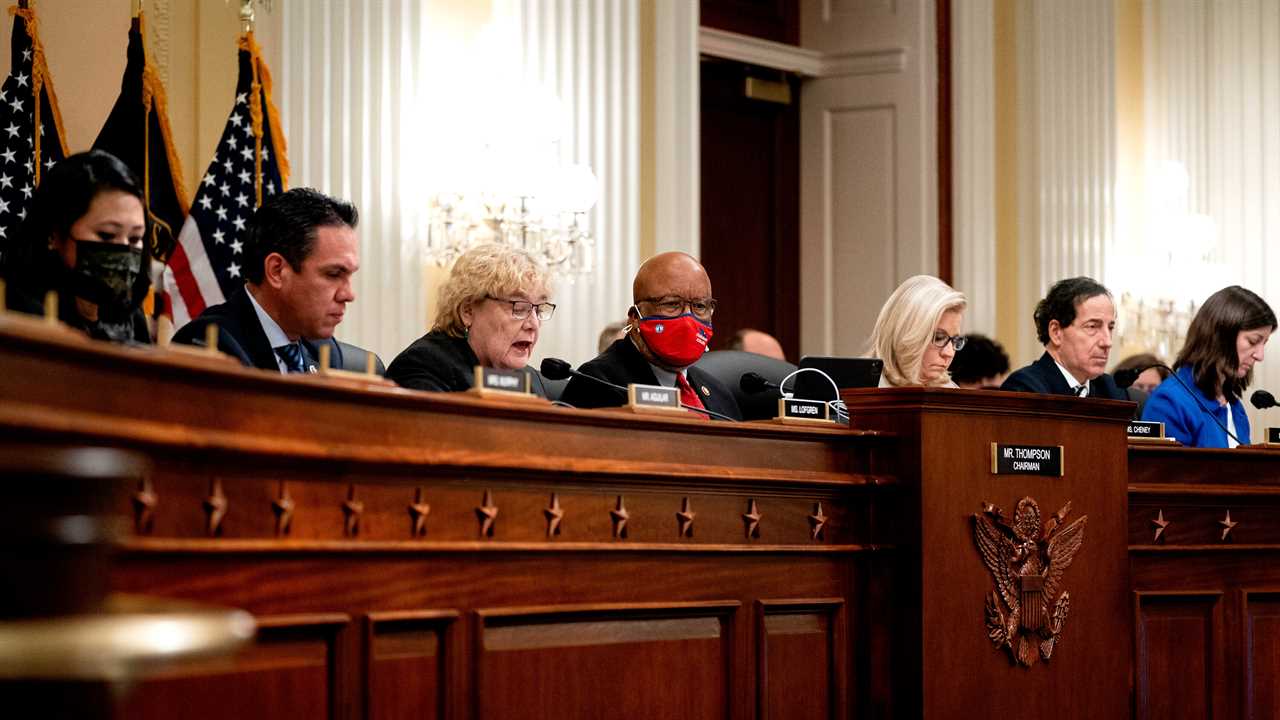
When the House formed a special committee this summer to investigate the Jan. 6 Capitol assault, its stated goal was to compile the most authoritative account of what occurred and make recommendations to ensure it never happens again.But as investigators sifted through troves of documents, metadata and interview transcripts, they started considering whether the inquiry could yield something potentially more consequential: evidence of criminal conduct by President Donald J. Trump or others that they could send to the Justice Department urging an investigation.That move — known as sending a criminal referral — has no legal weight, as Congress has little ability to tell the Justice Department what investigations it should undertake. But it could have a substantial political impact by increasing public pressure on Attorney General Merrick B. Garland, who in his first year in office has largely sidestepped questions about what prosecutors are doing to examine the conduct of Mr. Trump and his aides as they promoted baseless allegations of voter fraud.The questions of criminality go far beyond the contempt of Congress referrals that the House has sent to the Justice Department for Mr. Trump’s former chief strategist, Stephen K. Bannon, and his former chief of staff, Mark Meadows, for their refusal to cooperate with the investigation. (Federal law requires prosecutors to bring contempt of Congress charges before a grand jury upon receiving such a referral.)According to people briefed on their efforts, investigators for the committee are looking into whether a range of crimes were committed, including two in particular: whether there was wire fraud by Republicans who raised millions of dollars off assertions that the election was stolen, despite knowing the claims were not true; and whether Mr. Trump and his allies obstructed Congress by trying to stop the certification of electoral votes.It is not clear what, if any, new evidence the committee has that might support a criminal referral, when and how it will determine whether to pursue that option and whether the committee could produce a case strong enough to hold up against inevitable accusations that it acted in a partisan manner.Behind the scenes, the committee’s day-to-day work is being carried out by a team of 40 investigators and staff members, including former federal prosecutors. The panel has obtained more than 30,000 records and interviewed more than 300 witnesses, including about a dozen last week whom committee members say provided “key” testimony.In recent weeks, the committee has publicly signaled its interest in the question of criminality. Shortly after obtaining from Mr. Meadows 9,000 pages of documents — including text messages and a PowerPoint presentation — the panel’s top Republican, Representative Liz Cheney of Wyoming, read from the criminal code at a televised hearing.She suggested that Mr. Trump, by failing to stop the violence at the Capitol on Jan. 6, might have violated the federal law that prohibits obstructing an official proceeding before Congress.“We know hours passed with no action by the president to defend the Congress of the United States from an assault while we were trying to count electoral votes,” Ms. Cheney said, adding: “Did Donald Trump, through action or inaction, corruptly seek to obstruct or impede Congress’s official proceeding to count electoral votes?”Understand the U.S. Capitol Riot
On Jan. 6, 2021, a pro-Trump mob stormed the Capitol.
What Happened: Here’s the most complete picture to date of what happened — and why.Timeline of Jan. 6: A presidential rally turned into a Capitol rampage in a critical two-hour time period. Here’s how.Key Takeaways: Here are some of the major revelations from The Times’s riot footage analysis.Death Toll: Five people died in the riot. Here’s what we know about them.Decoding the Riot Iconography: What do the symbols, slogans and images on display during the violence really mean?The question is one of the most significant to emerge in the first six months of the investigation.The panel has nine House members — including two Republicans — and is modeling itself on the commission that investigated the Sept. 11, 2001, terrorist attacks. The committee plans to produce the authoritative report about Jan. 6.It plans to hold televised hearings early next year to lay out for the public how the pro-Trump “Stop the Steal” movement helped lead to the Capitol riot. And it ultimately may propose changes to federal laws, toughening statutes to rein in a president’s conduct and overhauling the Electoral Count Act, which Mr. Trump and his allies sought to exploit in his attempt to cling to power.One of the challenges the committee faces is that so much has been reported about Mr. Trump’sBy: Michael S. Schmidt and Luke Broadwater
Title: Jan. 6 Committee Weighs Possibility of Criminal Referrals
Sourced From: www.nytimes.com/2021/12/20/us/politics/jan-6-committee-criminal-referrals.html
Published Date: Tue, 21 Dec 2021 00:36:49 +0000
Read More
Did you miss our previous article...
https://badpoliticians.com/us-politics/biden-plans-to-fight-omicron-with-military-aid-and-500-million-tests
 UK PoliticsWorld PoliticsVideosPrivacy PolicyTerms And Conditions
UK PoliticsWorld PoliticsVideosPrivacy PolicyTerms And Conditions
